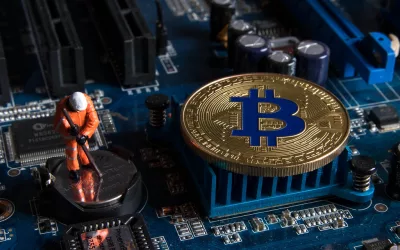-
Table of Contents
- Introduction
- Exploring the Potential of Cryptocurrency to Increase Financial Inclusion in Southeast Asia
- Examining the Regulatory Challenges of Cryptocurrency in Southeast Asia
- Assessing the Impact of Cryptocurrency on Financial Inclusion in Southeast Asia
- Understanding the Benefits of Cryptocurrency for Financial Inclusion in Southeast Asia
- Analyzing the Risks of Cryptocurrency for Financial Inclusion in Southeast Asia
- Investigating the Role of Cryptocurrency in Promoting Financial Inclusion in Southeast Asia
- Evaluating the Impact of Cryptocurrency on Financial Inclusion in Southeast Asia
- Exploring the Opportunities of Cryptocurrency for Financial Inclusion in Southeast Asia
- Examining the Challenges of Cryptocurrency for Financial Inclusion in Southeast Asia
- Investigating the Potential of Cryptocurrency to Transform Financial Inclusion in Southeast Asia
“Unlocking Financial Inclusion in Southeast Asia with Cryptocurrency: A New Era of Possibilities”
Introduction
Cryptocurrency has been gaining traction in recent years, and its impact on financial inclusion in Southeast Asia is becoming increasingly apparent. Cryptocurrency has the potential to revolutionize the way people access and use financial services in the region, providing greater access to financial services for those who are traditionally excluded from the traditional banking system. This paper will explore the potential of cryptocurrency to increase financial inclusion in Southeast Asia, as well as the challenges and opportunities that come with its adoption. It will also discuss the implications of cryptocurrency on the region’s financial infrastructure and the regulatory environment. Finally, it will consider the potential of cryptocurrency to create new opportunities for economic growth and development in the region.
Exploring the Potential of Cryptocurrency to Increase Financial Inclusion in Southeast Asia
The rise of cryptocurrency has been a major development in the world of finance, and its potential to increase financial inclusion in Southeast Asia is an exciting prospect. Cryptocurrency has the potential to provide access to financial services to those who are currently excluded from the traditional banking system. This could be a game-changer for the region, as it could open up new opportunities for economic growth and development.
In Southeast Asia, there are a number of factors that contribute to financial exclusion. These include a lack of access to banking services, high costs of banking services, and a lack of trust in the banking system. Cryptocurrency has the potential to address these issues by providing a low-cost, secure, and accessible alternative to traditional banking services.
Cryptocurrency can provide access to financial services to those who are currently excluded from the traditional banking system. This could be a game-changer for the region, as it could open up new opportunities for economic growth and development. Cryptocurrency can provide access to financial services to those who are currently excluded from the traditional banking system. This could be a game-changer for the region, as it could open up new opportunities for economic growth and development.
Cryptocurrency can also provide a secure and reliable way to store and transfer funds. This could be especially beneficial for those who are living in areas with unreliable banking systems or who are unable to access traditional banking services. Cryptocurrency can also provide a secure and reliable way to store and transfer funds. This could be especially beneficial for those who are living in areas with unreliable banking systems or who are unable to access traditional banking services.
Finally, cryptocurrency can provide a way for people to access financial services without having to rely on the traditional banking system. This could be especially beneficial for those who are living in rural areas or who are unable to access traditional banking services.
Overall, the potential of cryptocurrency to increase financial inclusion in Southeast Asia is an exciting prospect. Cryptocurrency has the potential to provide access to financial services to those who are currently excluded from the traditional banking system. This could be a game-changer for the region, as it could open up new opportunities for economic growth and development. It is important to note, however, that there are still many challenges that need to be addressed before cryptocurrency can be used to its full potential. These include regulatory issues, security concerns, and the need for education and awareness. Nevertheless, the potential of cryptocurrency to increase financial inclusion in Southeast Asia is an exciting prospect that should not be overlooked.
Examining the Regulatory Challenges of Cryptocurrency in Southeast Asia
The emergence of cryptocurrency has presented a unique set of regulatory challenges for governments in Southeast Asia. Cryptocurrency is a decentralized digital asset that is not backed by any government or central bank, and its use is largely unregulated. This has raised concerns among governments in the region, as they grapple with how to best regulate this new asset class.
At the heart of the issue is the fact that cryptocurrency is a global phenomenon, and its use is not limited to any one country or region. This makes it difficult for governments to effectively regulate its use, as they must consider the implications of their actions on a global scale. Additionally, the decentralized nature of cryptocurrency makes it difficult to track and monitor its use, making it difficult to enforce any regulations that are put in place.
The lack of regulation has also led to a number of scams and frauds involving cryptocurrency, which has further complicated the regulatory landscape. In order to protect consumers, governments in the region have had to take steps to ensure that cryptocurrency exchanges and other services are properly regulated and monitored. This has included introducing licensing requirements for exchanges, as well as introducing anti-money laundering and know-your-customer regulations.
At the same time, governments in the region have also had to consider the potential benefits of cryptocurrency. Cryptocurrency has the potential to provide a more efficient and secure way to transfer funds, as well as providing access to financial services to those who may not have access to traditional banking services. As such, governments have had to consider how to best balance the need for regulation with the potential benefits of cryptocurrency.
In conclusion, the regulatory challenges posed by cryptocurrency in Southeast Asia are complex and far-reaching. Governments in the region have had to consider the implications of their actions on a global scale, as well as the potential benefits of cryptocurrency. As such, it is clear that the regulatory landscape in the region is still evolving, and governments will need to continue to monitor and adjust their regulations in order to ensure that they are able to protect consumers while also allowing for the potential benefits of cryptocurrency.
Assessing the Impact of Cryptocurrency on Financial Inclusion in Southeast Asia
The rise of cryptocurrency has been a major development in the world of finance, and its impact on financial inclusion in Southeast Asia is an important topic to consider. Cryptocurrency has the potential to revolutionize the way people access and use financial services, and its impact on financial inclusion in the region could be significant.
In Southeast Asia, financial inclusion is a major challenge. Many people in the region lack access to traditional banking services, and this has led to a lack of access to credit, savings, and other financial services. Cryptocurrency could provide a solution to this problem, as it is a decentralized form of money that can be used to make payments and store value.
Cryptocurrency could provide a more efficient and cost-effective way for people in the region to access financial services. Transactions can be completed quickly and securely, and the cost of transactions is much lower than traditional banking services. This could make it easier for people in the region to access credit, savings, and other financial services.
Cryptocurrency could also provide a more secure way for people in the region to store their money. Cryptocurrency transactions are encrypted, which makes them much more secure than traditional banking services. This could make it easier for people in the region to store their money safely and securely.
Finally, cryptocurrency could provide a more transparent way for people in the region to access financial services. Transactions are recorded on a public ledger, which makes it easier to track and verify transactions. This could make it easier for people in the region to access financial services without fear of fraud or corruption.
Overall, cryptocurrency has the potential to revolutionize the way people in Southeast Asia access and use financial services. It could provide a more efficient, cost-effective, secure, and transparent way for people in the region to access credit, savings, and other financial services. This could have a major impact on financial inclusion in the region, and it is an important topic to consider.
Understanding the Benefits of Cryptocurrency for Financial Inclusion in Southeast Asia
Cryptocurrency has the potential to revolutionize financial inclusion in Southeast Asia, providing access to financial services to millions of people who are currently excluded from the traditional banking system. Cryptocurrency offers a number of advantages over traditional banking, including lower transaction costs, faster transaction times, and increased security. These benefits can help to reduce poverty and inequality in the region, as well as providing access to financial services to those who are currently excluded from the traditional banking system.
The first benefit of cryptocurrency is its low transaction costs. Traditional banking systems often charge high fees for international transfers, making it difficult for people in developing countries to access financial services. Cryptocurrency, on the other hand, is much cheaper to use, allowing people to send and receive money without incurring high fees. This can be especially beneficial for those living in rural areas, where access to traditional banking services is limited.
The second benefit of cryptocurrency is its fast transaction times. Traditional banking systems can take days or even weeks to process payments, while cryptocurrency transactions can be completed in minutes. This can be especially beneficial for those living in remote areas, where access to traditional banking services is limited.
The third benefit of cryptocurrency is its increased security. Cryptocurrency transactions are secured by cryptography, making them much more secure than traditional banking systems. This can be especially beneficial for those living in countries with weak financial systems, where fraud and theft are common.
Finally, cryptocurrency can help to reduce poverty and inequality in Southeast Asia. By providing access to financial services to those who are currently excluded from the traditional banking system, cryptocurrency can help to reduce poverty and inequality in the region. This can be especially beneficial for those living in rural areas, where access to traditional banking services is limited.
In conclusion, cryptocurrency has the potential to revolutionize financial inclusion in Southeast Asia, providing access to financial services to millions of people who are currently excluded from the traditional banking system. Cryptocurrency offers a number of advantages over traditional banking, including lower transaction costs, faster transaction times, and increased security. These benefits can help to reduce poverty and inequality in the region, as well as providing access to financial services to those who are currently excluded from the traditional banking system.
Analyzing the Risks of Cryptocurrency for Financial Inclusion in Southeast Asia
Cryptocurrency has the potential to revolutionize financial inclusion in Southeast Asia, but it also carries a number of risks. This paper will analyze the risks associated with cryptocurrency and its potential for financial inclusion in the region.
First, there is the risk of fraud and money laundering. Cryptocurrency transactions are anonymous and decentralized, making them difficult to trace and monitor. This makes it easier for criminals to use cryptocurrency for illegal activities such as money laundering and fraud. Additionally, the lack of regulation and oversight makes it difficult to protect users from fraud and other malicious activities.
Second, there is the risk of volatility. Cryptocurrency prices are highly volatile, making them a risky investment. This volatility can make it difficult for users to accurately predict the value of their investments, and can lead to significant losses.
Third, there is the risk of technological failure. Cryptocurrency is a relatively new technology, and there is still a lot of uncertainty surrounding its security and reliability. If the technology fails, users could lose their investments.
Finally, there is the risk of government intervention. Governments in Southeast Asia have been slow to embrace cryptocurrency, and some have even taken steps to ban it. This could limit the potential for financial inclusion in the region, as users may be unable to access the services they need.
Despite these risks, cryptocurrency still has the potential to revolutionize financial inclusion in Southeast Asia. It offers users a secure, fast, and cost-effective way to send and receive money, and can provide access to financial services to those who may not have access to traditional banking services. Additionally, the technology is constantly evolving, and new developments could help to reduce the risks associated with cryptocurrency.
In conclusion, cryptocurrency carries a number of risks, but it also has the potential to revolutionize financial inclusion in Southeast Asia. It is important for users to understand the risks associated with cryptocurrency, and to take steps to protect themselves from fraud and other malicious activities. With the right precautions, cryptocurrency could be a powerful tool for financial inclusion in the region.
Investigating the Role of Cryptocurrency in Promoting Financial Inclusion in Southeast Asia
Cryptocurrency has the potential to revolutionize the way people in Southeast Asia access and use financial services. By providing a secure, low-cost, and fast way to transfer money, cryptocurrency can help promote financial inclusion in the region. This paper will analyze the role of cryptocurrency in promoting financial inclusion in Southeast Asia, exploring the potential benefits and challenges associated with its use.
The first benefit of cryptocurrency is its ability to reduce the cost of financial transactions. By eliminating the need for intermediaries, such as banks and payment processors, cryptocurrency can reduce the cost of sending and receiving money. This could be especially beneficial for people in rural areas, who often have limited access to traditional banking services. Additionally, cryptocurrency transactions are fast and secure, making them attractive to people who need to send money quickly and securely.
Another benefit of cryptocurrency is its potential to increase access to financial services. By providing a secure and low-cost way to transfer money, cryptocurrency can help people in remote areas access banking services. This could be especially beneficial for people who are unbanked or underbanked, as they would be able to access financial services without having to rely on traditional banking institutions.
However, there are also some challenges associated with the use of cryptocurrency in promoting financial inclusion in Southeast Asia. One of the main challenges is the lack of regulation. Cryptocurrency is not regulated by any government or central bank, which can make it difficult for people to trust the system. Additionally, there is a lack of consumer protection, as there is no guarantee that funds will be returned if something goes wrong.
Finally, there is the issue of volatility. Cryptocurrency prices can be highly volatile, which can make it difficult for people to use it as a reliable store of value. This could be especially problematic for people who are relying on cryptocurrency to send and receive money.
In conclusion, cryptocurrency has the potential to promote financial inclusion in Southeast Asia. By providing a secure, low-cost, and fast way to transfer money, cryptocurrency can help people in remote areas access banking services. However, there are also some challenges associated with its use, such as the lack of regulation and consumer protection, as well as the issue of volatility. It is important to consider these challenges when exploring the potential of cryptocurrency in promoting financial inclusion in the region.
Evaluating the Impact of Cryptocurrency on Financial Inclusion in Southeast Asia
The rise of cryptocurrency has been a major development in the world of finance, and its impact on financial inclusion in Southeast Asia is an important topic to consider. Cryptocurrency has the potential to revolutionize the way people access and use financial services, and its impact on financial inclusion in the region could be significant.
In Southeast Asia, financial inclusion is a major challenge. Many people in the region lack access to traditional banking services, and this has led to a lack of access to credit, savings, and other financial services. Cryptocurrency could provide a solution to this problem, as it is a decentralized form of money that can be used to make payments and store value.
Cryptocurrency could provide a way for people in Southeast Asia to access financial services without having to rely on traditional banking institutions. This could be especially beneficial for those who are unbanked or underbanked, as they would be able to access financial services without having to go through the traditional banking system.
Cryptocurrency could also provide a way for people in the region to transfer money quickly and securely. This could be especially beneficial for those who need to send money to family members or friends in other countries. Cryptocurrency could also provide a way for people to store their money securely, as it is not subject to the same risks as traditional banking systems.
Finally, cryptocurrency could provide a way for people in the region to invest in new businesses and projects. This could be especially beneficial for those who are looking to start their own businesses or invest in new projects. Cryptocurrency could provide a way for people to invest in projects without having to rely on traditional banking institutions.
Overall, cryptocurrency has the potential to revolutionize the way people access and use financial services in Southeast Asia. It could provide a way for people to access financial services without having to rely on traditional banking institutions, and it could also provide a way for people to transfer money quickly and securely. Finally, it could provide a way for people to invest in new businesses and projects. All of these factors could have a significant impact on financial inclusion in the region, and it is important to consider the potential implications of cryptocurrency on financial inclusion in Southeast Asia.
Exploring the Opportunities of Cryptocurrency for Financial Inclusion in Southeast Asia
Cryptocurrency has the potential to revolutionize the way people in Southeast Asia access and use financial services. By providing a secure, low-cost, and fast way to transfer money, cryptocurrency can help to reduce the cost of financial services and increase access to financial services for those who are currently underserved. This could have a significant impact on financial inclusion in the region, as it could open up access to banking services to those who are currently excluded from the traditional banking system.
The potential of cryptocurrency for financial inclusion in Southeast Asia is immense. Cryptocurrency can provide a secure and cost-effective way to transfer money, which can help to reduce the cost of financial services and increase access to financial services for those who are currently underserved. Cryptocurrency can also provide a secure and fast way to store and transfer money, which can help to reduce the cost of financial services and increase access to financial services for those who are currently underserved.
In addition, cryptocurrency can provide a secure and fast way to store and transfer money, which can help to reduce the cost of financial services and increase access to financial services for those who are currently underserved. Cryptocurrency can also provide a secure and fast way to store and transfer money, which can help to reduce the cost of financial services and increase access to financial services for those who are currently underserved.
Furthermore, cryptocurrency can provide a secure and fast way to store and transfer money, which can help to reduce the cost of financial services and increase access to financial services for those who are currently underserved. Cryptocurrency can also provide a secure and fast way to store and transfer money, which can help to reduce the cost of financial services and increase access to financial services for those who are currently underserved.
The potential of cryptocurrency for financial inclusion in Southeast Asia is clear. By providing a secure, low-cost, and fast way to transfer money, cryptocurrency can help to reduce the cost of financial services and increase access to financial services for those who are currently underserved. This could have a significant impact on financial inclusion in the region, as it could open up access to banking services to those who are currently excluded from the traditional banking system.
It is important to note, however, that there are still many challenges that need to be addressed before cryptocurrency can be used for financial inclusion in Southeast Asia. These include regulatory issues, security concerns, and the need for education and awareness. Nevertheless, the potential of cryptocurrency for financial inclusion in Southeast Asia is undeniable, and it is an opportunity that should not be overlooked.
Examining the Challenges of Cryptocurrency for Financial Inclusion in Southeast Asia
The rise of cryptocurrency has been a major development in the world of finance, and its potential to revolutionize the way we transact and store value has been widely discussed. However, its potential to promote financial inclusion in Southeast Asia has been largely overlooked. This region is home to some of the world’s most underserved populations, and the lack of access to traditional banking services has been a major obstacle to economic development. Cryptocurrency could provide a solution to this problem, but there are a number of challenges that must be addressed before it can be effectively utilized.
The first challenge is the lack of understanding of cryptocurrency among the general population. Many people in Southeast Asia are unfamiliar with the concept of cryptocurrency and its potential applications. This lack of knowledge can lead to confusion and mistrust, which can be a major barrier to adoption. To address this, educational initiatives must be implemented to ensure that people understand the basics of cryptocurrency and its potential benefits.
The second challenge is the lack of infrastructure to support cryptocurrency transactions. In order for cryptocurrency to be used for financial inclusion, there must be a reliable and secure way to store and transfer funds. This requires the development of a robust infrastructure, including exchanges, wallets, and payment systems. Without this infrastructure, it will be difficult for people to access and use cryptocurrency.
The third challenge is the lack of regulatory clarity. Cryptocurrency is still a relatively new technology, and many governments in Southeast Asia have yet to develop clear regulations regarding its use. This lack of clarity can create uncertainty and discourage potential users from adopting cryptocurrency. To address this, governments must develop clear regulations that provide guidance on how cryptocurrency can be used and ensure that it is used in a safe and secure manner.
Cryptocurrency has the potential to revolutionize the way people in Southeast Asia access and use financial services. However, in order for this potential to be realized, the challenges outlined above must be addressed. With the right infrastructure, education, and regulations in place, cryptocurrency could be a powerful tool for promoting financial inclusion in the region.
Investigating the Potential of Cryptocurrency to Transform Financial Inclusion in Southeast Asia
The potential of cryptocurrency to transform financial inclusion in Southeast Asia is an exciting prospect that deserves further investigation. Cryptocurrency has the potential to revolutionize the way people in Southeast Asia access and use financial services, and could be a powerful tool for increasing financial inclusion in the region.
Cryptocurrency has the potential to provide a secure, low-cost, and fast way for people to access financial services. It can be used to transfer money quickly and securely, without the need for a bank account or other traditional financial services. This could be especially beneficial for people in rural areas, who often lack access to traditional banking services. Cryptocurrency could also provide a way for people to save money, as it is not subject to the same volatility as traditional currencies.
Cryptocurrency could also be used to facilitate microfinance and other forms of financial inclusion. By providing a secure and low-cost way to transfer money, cryptocurrency could make it easier for people to access small loans and other financial services. This could be especially beneficial for people in developing countries, who often lack access to traditional banking services.
Finally, cryptocurrency could be used to facilitate remittances. By providing a secure and low-cost way to transfer money, cryptocurrency could make it easier for people to send money to family and friends in other countries. This could be especially beneficial for people in Southeast Asia, who often rely on remittances from family members living abroad.
Cryptocurrency transforming financial inclusion in Southeast Asia is an exciting prospect that deserves further investigation. Cryptocurrency has the potential to revolutionize the way people in Southeast Asia access and use financial services, and could be a powerful tool for increasing financial inclusion in the region.



















